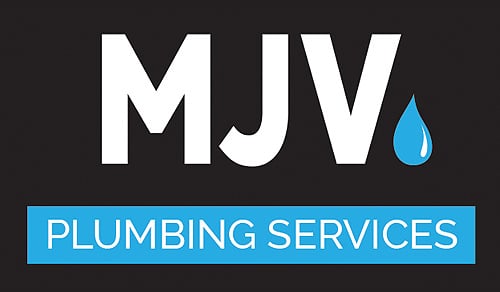Blocked drains are a common household issue in Melbourne, and finding an effective solution can be challenging. A skilled blocked drain plumber in Melbourne is essential to address this problem. Understanding the causes, prevention, and solutions for blocked drains is crucial for maintaining a smooth-running plumbing system and ensuring the longevity and efficiency of your home’s plumbing infrastructure. This comprehensive guide aims to delve deeper into these aspects, offering valuable insights and practical tips to help you effectively manage and resolve this common household problem, keeping your home safe and your plumbing in optimal condition.
What Causes Blocked Drains?
Blocked drains can occur due to a variety of reasons. In many cases, the expertise of a blocked drain plumber in Melbourne is required to diagnose and resolve these issues effectively. Some of the most common causes include:
Hair Accumulation: Hair is a significant contributor to drain blockages. Over time, hair can bind with grease and other substances in your pipes, creating significant blockages that are tough to clear without proper tools or techniques.
Grease and Fat: Common in kitchen sinks, grease and fat from cooking can solidify inside pipes, creating stubborn blockages. These substances often stick to the inner walls of pipes, accumulating over time and reducing water flow.
Foreign Objects: Items that shouldn’t be flushed or washed down the drain, such as sanitary products, cotton swabs, or food scraps, can get stuck and cause significant blockages. These objects can also damage your plumbing system if not removed promptly.
Tree Roots: Tree roots seeking moisture can grow into pipes through cracks or loose joints, leading to blockages and potential pipe damage. This can be a more significant issue as it causes blockages, leading to broken or collapsed pipes requiring extensive repair.
Understanding these common causes of blocked drains is the first step in effective prevention and resolution. By being aware of what goes down your drains and regularly maintaining your plumbing system, you can avoid many common issues that lead to blockages.
Preventing Blocked Drains
Prevention is the most effective strategy when it comes to managing blocked drains. Proactive measures can significantly reduce the likelihood of blockages and the need for costly repairs. Here are some key tips to prevent blocked drains:
Use Drain Strainers: These simple devices effectively catch hair, soap pieces, and other debris that could clog your drains. It’s important to clean these filters regularly to ensure they work effectively.
Dispose of Grease Properly: Instead of pouring grease down the drain, which can solidify and cause blockages, it’s better to let it cool and dispose of it in the trash. Alternatively, some areas offer grease recycling programs.
Regular Maintenance: Regular checks and maintenance, such as using drain cleaners or inspecting pipes, can help identify potential problems early on, preventing major blockages. This includes being mindful of the first signs of slow drainage, often indicating a developing clog.
Educate Household Members: Ensuring everyone knows what should and should not go down the drains can prevent many blockage issues. This includes avoiding disposing of items like wipes, cotton swabs, and other non-biodegradable items down the toilet.
Be Cautious with Chemical Cleaners: While chemical drain cleaners can offer a quick fix, they can also damage your plumbing if used excessively. For minor clogs, try natural alternatives or mechanical methods first.
DIY Solutions for Blocked Drains
If you encounter a blocked drain, there are several DIY methods you can try before calling a professional:
Plunger: Often effective for minor blockages, a plunger can create pressure that dislodges clogs. Use the correct plunger for your sink or toilet for the best effect.
Baking Soda and Vinegar: This natural method involves pouring a mixture of baking soda and vinegar down the drain, followed by hot water. This can help dissolve organic matter causing the blockage.
Drain Snake: A drain snake, or a plumber’s auger, is useful for more stubborn blockages. It can reach deeper into the pipes and physically remove clogs.
Hot Water Flush: Regularly flushing your drains with hot water can help dissolve any grease or substances that may start to build up in your pipes.
Dish Soap and Hot Water: For grease-related blockages, a mixture of dish soap and boiling water can help break down the grease and clear the blockage.
Remember, while these DIY solutions can be effective for minor blockages, persistent or major blockages may require professional intervention to avoid potential damage to your plumbing system.
When to Call a Professional
Sometimes, more than DIY methods are required to tackle blocked drains effectively. Here’s when you should consider calling a professional:
Persistent Blockages: If blockages recur despite your best efforts, it could indicate a deeper issue within your plumbing system that requires professional tools and expertise to resolve.
Slow Draining: Consistently slow drains might be a symptom of a more significant blockage or structural issues with your plumbing. Professional help is necessary to diagnose and resolve such issues effectively.
Bad Odors: Persistent bad odours emanating from your drains can indicate a deep blockage within your plumbing system, possibly even a broken pipe or sewer line issue requiring immediate professional attention.
Water Backup: If you notice water backing up in sinks, toilets, or showers, it’s a clear sign of a significant blockage, and it’s time to call in the professionals.
Multiple Clogged Drains: If more than one drain in your home is clogged, this could signify a serious issue with your main sewer line, a job for professional plumbers.
Choosing the Right Plumbing Service
Choosing the right plumbing service is crucial when solving issues with blocked drains. You want a reliable, experienced team to handle the problem efficiently and effectively. Here are some tips for selecting the right service:
Look for Licensed Professionals: Ensure the plumbing service is licensed and insured. This gives you assurance regarding their qualifications and credibility.
Check Reviews and References: Read online reviews or ask for references from previous clients to gauge the quality of their services.
Experience Matters: Opt for a plumbing service that has extensive experience, especially with issues similar to yours.
Availability and Response Time: In emergencies, you’ll need a plumber who can respond quickly. Check their availability and emergency service options.
Conclusion
Blocked drains are a nuisance, but understanding their causes, prevention, and solutions can make a significant difference. For those in Melbourne facing stubborn or complex drain blockages, MJV Plumbing Services Pty Ltd offers expert blocked drain plumber Melbourne services. Their experience and knowledge ensure that your plumbing issues are resolved promptly and professionally.


Add Comment